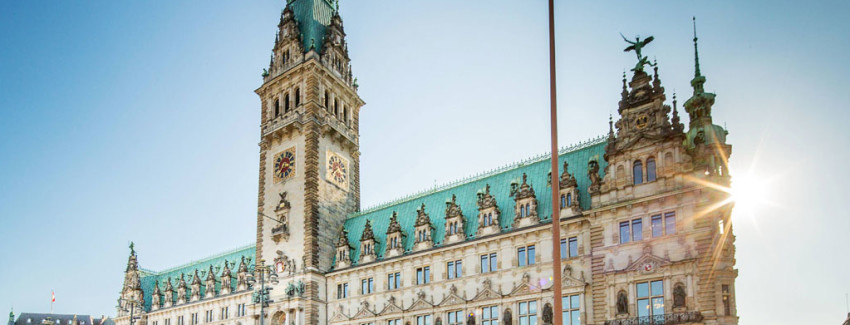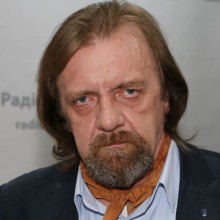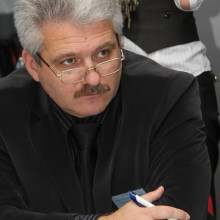Alexander Khara
diplomat, "Maidan of Foreig Affairs" foundation expert
The Ukraine issue at the G-20 summit will not be served as a main dish, rather a side. Instead, the key to this meeting will be the efforts by certain powers, primarily Germany, to maintain the world order (primarily, the economic one), which emerged built after the collapse of the Soviet Union. China will also be vigorously promoting such ideas, since its rising economy would, of course, choose to see open economies worldwide, above all, that of the U.S., in order to keep up its pace of growth. Climatic changes will remain a separate issue, in the wake of the U.S. withdrawal from the Paris Climate Agreement, effectively breaching global environmental efforts, including economy-wise. Besides, I believe that the Europeans, as well as the Japanese and Koreans, will try to continue molding their relations with Donald Trump, whose rhetoric they already get, while having no clue yet about his possible future actions in the economic area. So, these are the key points.
They are also very important for Ukraine as they are forming the new framework of global economy and trade. Accordingly, this will also contribute to whatever happens to the European Union, and how it will be reshaped. There is an ongoing crisis in the EU, so it's good that Merkel stands strong (most likely, in September, she will secure the majority in the German parliament and remain the country’s Chancellor). We also know that Macron has a safe majority in the French National Assembly. Both leaders have certain visions for the European Union, including for how it should function, in what way further integration should proceed, and so on.
It will be important for Ukraine to have a general look at what the European community and its economic model will be like, as well as how Kyiv could use the new realities in its favor.
It is important whether Trump will side with those pusing him to restraining Russia or he will continue to believe that it is necessary to negotiate with Putin.
The one thing that will definitely concern Ukraine at the G20 summit directly is the announced Trump-Putin meeting. Without a doubt, the Ukraine issue will be on the agenda, since the massive pressure on Trump on the part of the U.S. Congress, national authorities, and media require the U.S. leader’s certain behavior. It is important whether Trump will listen to his immediate entourage and advisers (National Security Advisor, Defense Secretary, and Secretary of State), or he will listen to the Congress majority, who say that Washington should only cooperate with Russia in a limited number of areas (for example, the fight against international terrorism, reduction of global threats, and the maintenance of a strategic balance), but in most areas there cannot be any constructive interaction today. That is, it’s important whether Trump will side with those pushing him to restraining Russia or he will continue to believe that it is necessary to negotiate with Putin (he even suggested once that it was possible to recognize Crimea Russian territory if Russia reduced its nuclear arsenal).
It is also important that Trump is visiting Warsaw before his trip to Hamburg, where the G20 summit will take place. It’s crucial for Trump to correct his mistake, that is his latest NATO summit address where he did not outline his willingness to apply Article 5 of the NATO Charter if a single NATO member state comes under attack. If he speaks about it in Poland and pledges commitment to Article 5, this will definitely send a positive signal to the whole democratic world and not quite a positive one to Putin, who is trying desperately to rock the countries along NATO borders, and through these efforts – to destabilize the EU and NATO as well.
Most likely, the Europeans will exert pressure on Ukraine for it to reintegrate the uncontrolled part of Donbas and hold elections. In this sense, the pressure on Ukraine will only be increasing.
On the summit’s sidelines, Vladimir Putin will also meet the leaders of Germany and France, where the Ukraine issue and the need to implement Minsk agreements are to be discussed. In general, the war in eastern Ukraine could come to an end in two scenarios: either Kyiv surrenders (but this will not be the case for sure), or Putin has no opportunity or sense to continue aggression. At the moment, the war does not cost him too much. "Fat reserves" accumulated by Russia back in the time when global energy prices were high, allow Putin to wait patiently, while trying in parallel lines to destabilize Europe and the U.S. At times, he seems to succeed in doing so.
That is, the word “Ukraine” will definitely be voiced in Hamburg but it will not be in the main focus, that's for sure. However, I don’t think Putin has something he can offer his interlocutors to make them abandon Ukraine. This is absolutely not the case. On the other hand, the Europeans have nothing that could in some way intimidate or interest Putin, either. That’s because the notorious "mantra" about the lack of any alternative to Minsk agreements and that it would only be possible to resolve the Donbas conflict exclusively through diplomacy (they avoid the terms "war" and "aggression"), is unlikely to change anything.
Russians do not recognize themselves party to the conflict and believe that they are fit intermediaries. If they think so, implementation of Minsk agreements is simply impossible. After all, the Minsk deal puts it really vaguely, saying that some foreign troops are operating in Ukraine, and so on. And Russia interprets this as something that does not relate to the Kremlin personally.
At the same time, sanctions are really painful for Russia, they are actually working. But they are working for the future, that is, they are not critical enough to alter Putin's behavior today. That is why the Russian president will follow the same strategy of protracting the war, accusing Ukraine of refusing a direct dialogue with the representatives of the occupied territories, and so on. Let me remind you that the French and Germans have said that Ukraine has to fulfill its obligations before residents of uncontrolled territories, to restore the banking system there, etc., and that the EU is ready to provide financial aid to this end. Most likely, the Europeans will exert pressure on Ukraine for it to reintegrate the uncontrolled part of Donbas and hold elections (I think that this issue has not died out - it will be resurfacing from time to time). In this sense, the pressure on Ukraine will be increasing.













